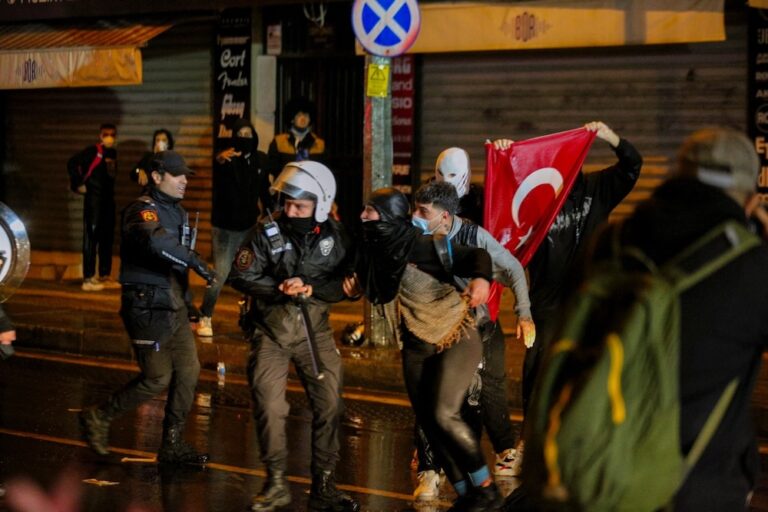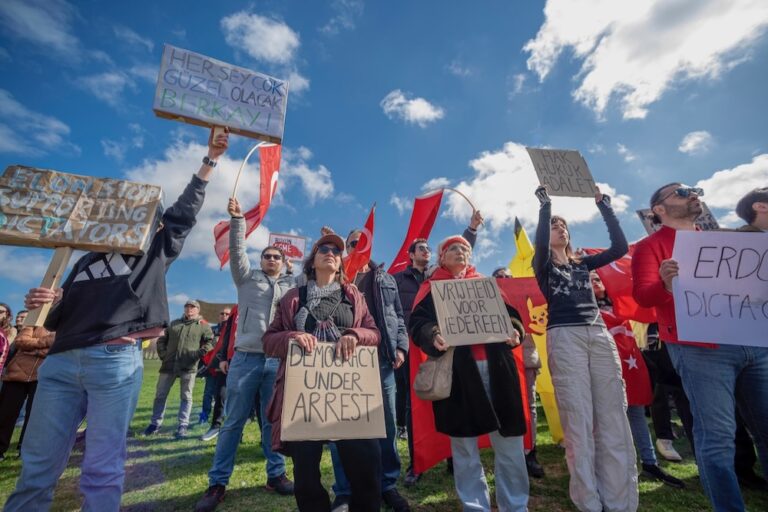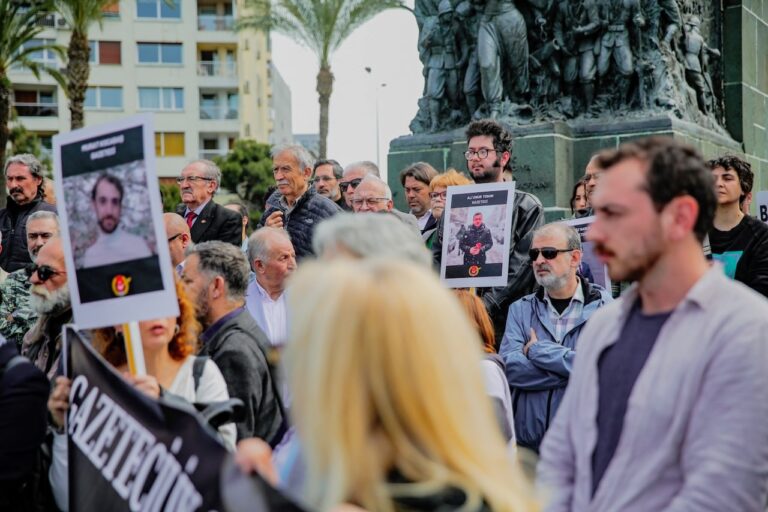Demirtaş, the former co-chair of the pro-Kurdish Peoples’ Democratic Party (HDP), has been in pre-trial detention since November 2016 on various spurious charges, many terrorism-related. The ECtHR ruled that his detention was politically motivated.
This statement was originally published on expressioninterrupted.com on 22 December 2020.
The Grand Chamber finds that Demirtaş’s detention pursued an ulterior motive, violated his freedom of expression, right to liberty and security and right to stand for election
The European Court of Human Rights issued its Grand Chamber judgment in the case of Selahattin Demirtaş on 22 December 2020, finding multiple violations of the European Convention on Human Rights and ordering Demirtaş’s immediate release. The Grand Chamber’s judgment is final.
Demirtaş, the former co-chair of the pro-Kurdish Peoples’ Democratic Party (HDP), has been in pre-trial detention since November 2016 on various accusations stemming from his remarks during HDP’s public statements, rallies, the speeches he delivered during public gatherings organized by various institutions, and his speeches at the Parliament.
In Tuesday’s judgment, the European Court held by a majority that the lifting of Demirtaş’s parliamentary immunity as a result of the constitutional amendment of 20 May 2016, his initial and continued pre-trial detention, and the criminal proceedings brought against him for terrorism-related offences on the basis of evidence comprising his political speeches violated his freedom of expression and his right to liberty and security.
Also finding a violation of Article 18 of the convention, the Court held by a majority of 16 votes to one that Demirtaş’s detention, especially during two crucial campaigns relating to the referendum of 16 April 2017 and the presidential election of 24 June 2018, had pursued the ulterior purpose of stifling pluralism and limiting freedom of political debate.
The Court held unanimously that Demirtaş’s right to be elected and to sit in Parliament was violated.
Ruling by a majority, the Court found no violation of the right to a speedy decision on the lawfulness of detention, saying that the review of Demirtaş’s application before the Constitutional Court taking 13 months was “not a violation in the specific circumstances of the case, particularly the court’s exceptional caseload during state of emergency.”
By 15 votes to two, the ECtHR held that Turkey is to take all necessary measures to secure Demirtaş’s immediate release.
According to Article 44 of the Convention, Grand Chamber judgments are final. All final judgments are transmitted to the Committee of Ministers of the Council of Europe for supervision of their execution.
The full text of the Grand Chamber judgment can be found here
Behind bars for more than 4 years
Demirtaş was arrested on 4 November 2016 on allegations of “establishing a criminal organization,” “membership of a terrorist organization,” “membership of an armed terrorist organization” and “committing crimes on behalf of a criminal organization” and jailed pending trial the same day by a Criminal Judgeship of Peace on duty.
A total of 33 separate cases against Demirtaş, in various courts across Turkey, have been merged with the main case against him, overseen by the Ankara 19th High Criminal Court.
On 7 September 2018, the Istanbul 26th High Criminal Court sentenced Demirtaş to 4 years and 8 months in prison for “terrorism propaganda” over his remarks during a speech he delivered at the 2013 Newroz celebration in Istanbul.
On 21 November 2018, the European Court of Human Rights held that Demirtaş’s detention was politically motivated and called on Turkey to take all necessary measures for his release. However, soon after the European Court’s judgment, on 4 December 2018, a regional court of justice upheld the 4-year sentence Demirtaş was given on the charge of “terrorism propaganda” and his conviction became final.
In September 2019, the Ankara 19th High Criminal Court ruled for Demirtaş’s release in the main trial, however, he remained behind bars due to his conviction in the “propaganda” trial. Also in September 2019, Demirtaş was rearrested on charges stemming from 2014’s Kobani protests from a different case that has also been merged with the main trial.



